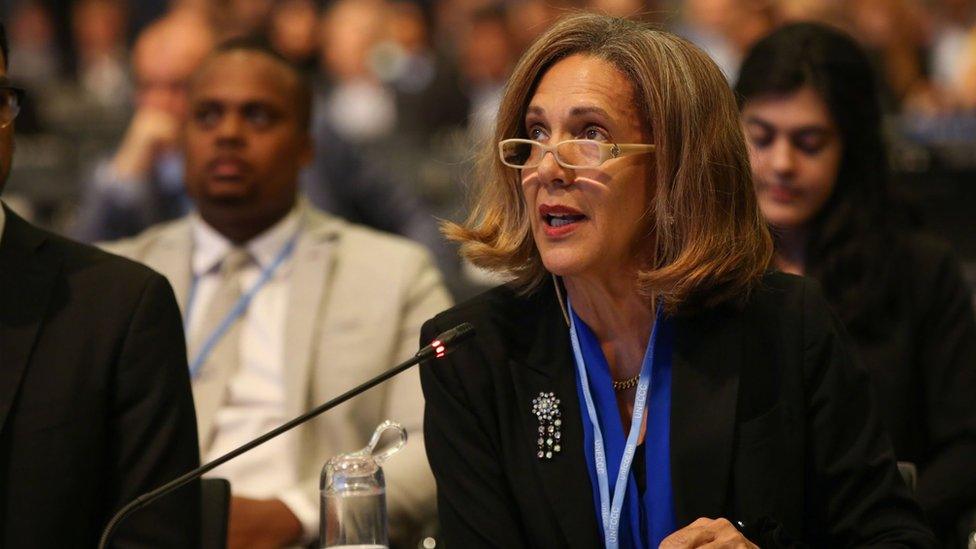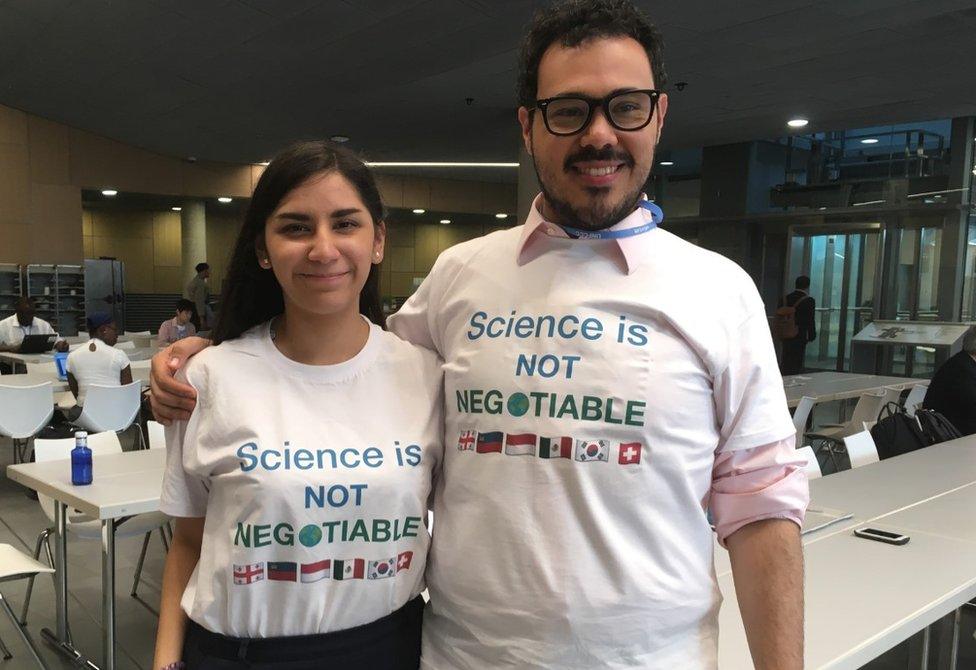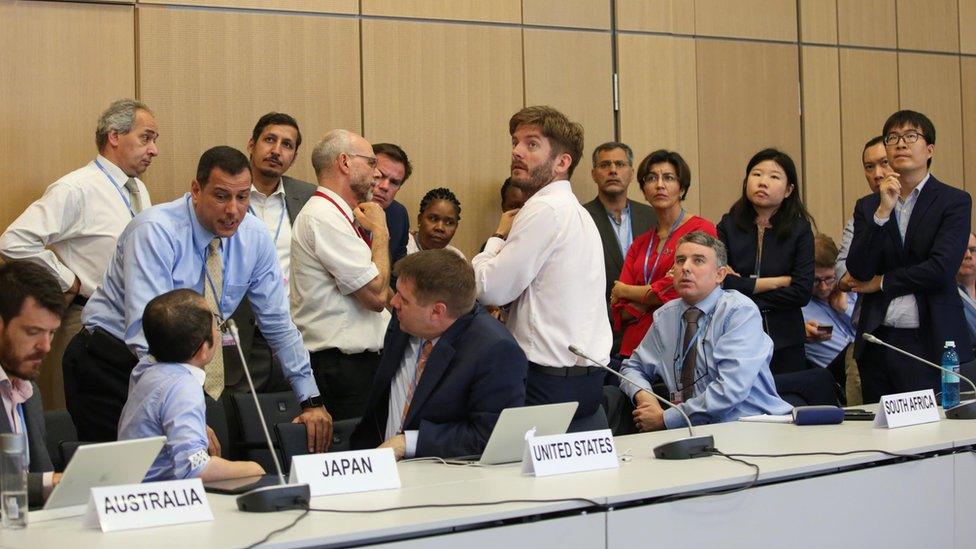Attempts to 'erase the science' at UN climate talks
- Published
- comments

Ambassador Lois Young from Belize is chair of the Alliance of Small Island States
Oil producing countries are trying to "erase the science" on keeping the world's temperatures below 1.5C, say some delegates at UN talks in Bonn.
The chair of the Alliance of Small Island States said Saudi Arabia and others were trying to pretend a key scientific report didn't exist.
Small island states believe keeping temperatures below 1.5C this century is critical to their survival.
A key report in October said this was possible.
But huge emissions cuts would be needed in the short term.
The Intergovernmental Panel on Climate Change (IPCC) report on 1.5C was commissioned by the UN back in 2015.
But when it was presented to climate negotiators in December in Poland, four countries including the US, Saudi Arabia, Russia and Kuwait refused to "welcome" it.
The simmering battle over the report has re-emerged here at this meeting in Bonn.
There has been a serious battle over a text that would include reference to the scientists' conclusion that carbon emissions would have to be reduced by 45% by 2030.
Saudi Arabia has been at the fore in wanting to include text that underlined the uncertainties in the report.
For the group of around 40 small island states, this has proved inflammatory.

Protestors made their feelings known about the question of science in UN climate talks
"The report came out in in October of 2018 and now we see this move at the negotiations to try and have it almost erased from existence, which is impossible to do," Lois Young, the ambassador from Belize, who is chairing the group, told the BBC.
"There's this move to pretend as though it's not there, to not to refer to it in documents. And it's been ongoing since we got here."
The Saudis have gained some support in their arguments from an unlikely alliance of countries, including the US, Australia and Iran.
"The countries that are trying to downplay the importance of the document, erase it from the records, not all of them are showing their faces," said Ambassador Young.
"It's unreal, it's as though they're resigning our Aosis states to collateral damage, I mean, it's like we have no importance doesn't matter."

Negotiators read the draft text in Bonn
Other observers here believe that the IPCC report has been a critical document in helping raise public awareness of the threat posed by climate change.
"The report has had a transformational effect, not just with the UK now passing a net zero law, but with public opinion around the world," said Alden Meyer, from the Union of Concerned Scientists.
"But there is a fault line between a handful of countries, most of them major oil producers on the significance and status of the report. But they can't put the stopper back in the bottle and pretend the report doesn't exist."
Efforts at finding a compromise are ongoing here in Bonn, with some delegates believing that both the goals for 2030 and the Saudi questions about uncertainty can be accommodated.
These talks are due to finish later today but if an agreed text can't be found, the increasingly rancorous debate may spill into the open at the final meeting this afternoon.
Follow Matt on Twitter., external